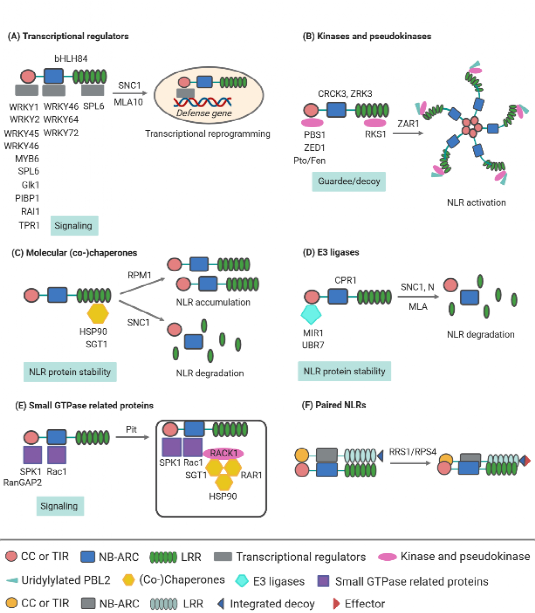Plants have evolved a sophisticated innate immune system to defend against pathogen infection. Intracellular nucleotide-binding, leucine-rich repeat (NLR or NB-LRR) immune receptors are one of the main components of this system. NLR activity is fine-tuned by intra- and intermolecular interactions.
Prof. Guan-Feng Wang's group at School of Life Science, Shandong University, published a review in Trends in plant science about the conservation and diversity of NLR-interacting proteins, which were divided into seven major categories, including transcriptional regulators, kinases or pseudo kinases, molecular chaperones and co-chaperones, ubiquitin ligases, small GTPase-related proteins, paired NLRs and other functional classes of NLR regulators. This review discussed the molecular mechanisms by which NLR activities are regulated and how understanding this regulation has potential to facilitate the engineering of NLRs for crop improvement.

Prof. Wang's group focuses on identification of novel NLR regulators and maize disease resistance genes. The first author of this review is assistant research fellow Yang Sun, and Prof. Wang is the corresponding author.
Paper link::
https://doi.org/10.1016/j.tplants.2020.02.008